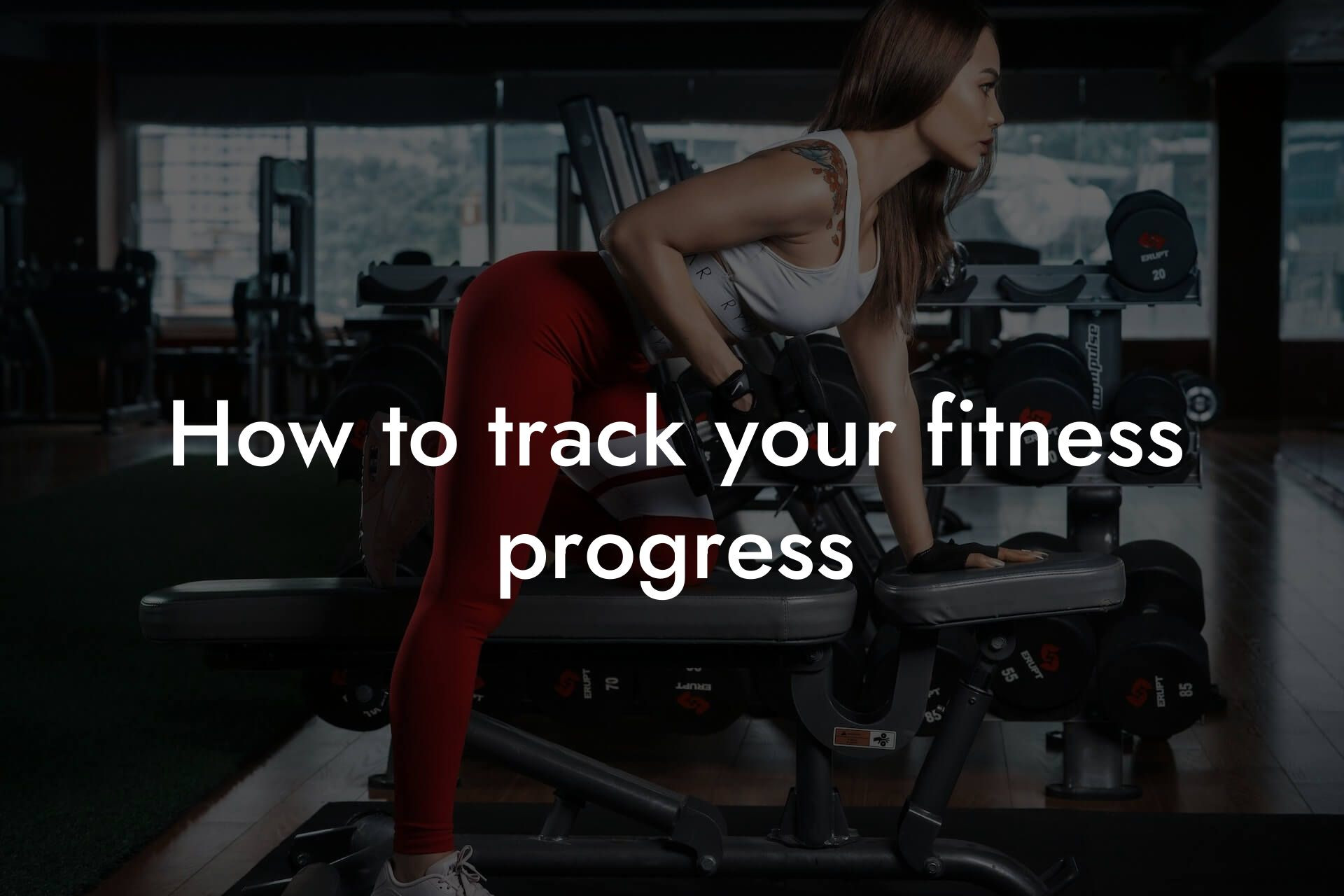As a high-earning professional, you understand the importance of maintaining a healthy and fit physique. Not only does it boost your confidence, but it also enhances your overall well-being and energy levels. When it comes to achieving your desired body composition, two popular options often come to mind: cardio and weightlifting. But which one is better for achieving your goals?
Table of Contents
What is Body Composition?
Before we dive into the debate, it's essential to understand what body composition is. Body composition refers to the proportion of fat and lean mass in your body. Lean mass includes muscle, bone, and water, while fat mass includes body fat. A healthy body composition is characterized by a high percentage of lean mass and a low percentage of body fat. As a professional, you want to aim for a body composition that not only looks good but also feels good and supports your overall health.
The Benefits of Cardio
Cardio, short for cardiovascular exercise, is an excellent way to burn calories and improve cardiovascular health. Some of the benefits of cardio include:
• Improved heart health: Regular cardio exercise strengthens your heart and lungs, reducing the risk of heart disease and stroke.
• Weight loss: Cardio is an effective way to burn calories and shed pounds, especially when combined with a healthy diet.
• Increased endurance: Cardio exercises, such as running or cycling, improve your endurance and stamina, making daily tasks and activities easier.
However, when it comes to body composition, cardio has some limitations. While it's excellent for burning calories, it may not be as effective for building lean mass or increasing muscle density.
The Benefits of Weightlifting
Weightlifting, on the other hand, is a form of resistance training that targets specific muscle groups to build strength and muscle mass. Some of the benefits of weightlifting include:
• Increased muscle mass: Weightlifting helps build lean mass, which can increase your metabolism and burn more calories at rest.
• Improved bone density: Resistance training, such as weightlifting, helps strengthen bones and prevent osteoporosis.
• Enhanced athletic performance: Weightlifting can improve your overall athletic performance by increasing power, speed, and agility.
Weightlifting is an excellent way to improve body composition by building lean mass and increasing muscle density. However, it may not be as effective for burning calories or improving cardiovascular health.
Which is Better for Body Composition?
So, which is better for body composition: cardio or weightlifting? The answer is, it depends on your goals and current fitness level. If you're looking to lose weight and improve cardiovascular health, cardio may be the better option. However, if you're looking to build lean mass and increase muscle density, weightlifting is the way to go.
A well-rounded fitness program should include a combination of both cardio and weightlifting exercises. This will help you achieve a balanced body composition that includes a healthy percentage of lean mass and body fat.
The Importance of Progressive Overload
When it comes to weightlifting, progressive overload is key to achieving optimal body composition. Progressive overload refers to gradually increasing the weight or resistance you're lifting over time to challenge your muscles and promote growth. This can be achieved by:
• Increasing the weight: Gradually increase the weight you're lifting to challenge your muscles and promote growth.
• Increasing the reps: Increase the number of reps you're doing to fatigue your muscles and promote growth.
• Decreasing rest time: Decrease the rest time between sets to increase the intensity and promote growth.
Progressive overload is essential for building lean mass and achieving optimal body composition.
How to Incorporate Both Cardio and Weightlifting into Your Fitness Routine
So, how can you incorporate both cardio and weightlifting into your fitness routine? Here are some tips:
• Start with 2-3 days of weightlifting per week, targeting different muscle groups each day.
• Incorporate 2-3 days of cardio per week, such as running, cycling, or swimming.
• Start with shorter cardio sessions (20-30 minutes) and gradually increase the duration as you build endurance.
• Make sure to include rest days in your routine to allow your muscles to recover and rebuild.
• Gradually increase the intensity and duration of your workouts as you build fitness and endurance.
Measuring Body Composition with DEXA Scans
At Tano Performance Group, we understand the importance of measuring body composition to track progress and achieve optimal results. That's why we use DEXA scans to provide our clients with a complete body assessment. DEXA scans use dual-energy X-ray absorptiometry to measure body composition, including lean mass, body fat, and bone density.
With DEXA scans, you can track your progress and make data-driven decisions to optimize your fitness routine and achieve your goals. Whether you're looking to lose weight, build lean mass, or improve overall health, DEXA scans provide the information you need to take your fitness to the next level.
In conclusion, both cardio and weightlifting are essential for achieving optimal body composition. While cardio is excellent for burning calories and improving cardiovascular health, weightlifting is better for building lean mass and increasing muscle density. A well-rounded fitness program should include a combination of both cardio and weightlifting exercises, with progressive overload and rest days to allow for recovery and growth. By incorporating DEXA scans into your fitness routine, you can track your progress and make data-driven decisions to achieve your goals. Remember, achieving optimal body composition takes time, patience, and dedication. With the right approach and tools, you can achieve the physique you've always wanted and take your fitness to the next level.
Frequently Asked Questions
What is the main difference between cardio and weightlifting?
Cardio exercises, such as running or cycling, focus on raising your heart rate and improving cardiovascular health. Weightlifting, on the other hand, involves using resistance to build muscle mass and increase strength. While both types of exercise can improve body composition, they have distinct effects on the body.
Which is better for burning calories?
Cardio exercises are generally more effective for burning calories during the exercise itself. However, weightlifting can increase your resting metabolic rate (RMR), meaning you'll burn more calories at rest after your workout. This can lead to increased calorie burn over time.
Will weightlifting make me bulky?
No, weightlifting will not necessarily make you bulky. Building significant muscle mass requires a calorie surplus and a focused training program. As a high-earning professional, you're likely more concerned with maintaining a lean physique, and weightlifting can help you achieve that.
Can I do both cardio and weightlifting?
Absolutely! In fact, combining both types of exercise can be an effective way to improve body composition. Just be sure to prioritize your goals and allocate your time and energy accordingly. For example, if you're trying to lose fat, you may want to focus on weightlifting and incorporate cardio as a supplement.
How often should I do cardio?
The frequency of cardio exercise depends on your goals and current fitness level. If you're trying to lose fat, 2-3 cardio sessions per week may be sufficient. However, if you're an endurance athlete, you may need to do cardio more frequently.
What is the best type of cardio for fat loss?
High-Intensity Interval Training (HIIT) is a popular and effective way to burn fat and improve cardiovascular health. HIIT involves short bursts of intense exercise followed by brief periods of rest. This type of exercise has been shown to improve insulin sensitivity and boost metabolism.
Can weightlifting help me lose fat?
Yes, weightlifting can help you lose fat by increasing your muscle mass. The more muscle you have, the higher your resting metabolic rate (RMR), which means you'll burn more calories at rest. This can lead to increased fat loss over time.
How much weight should I lift?
The amount of weight you should lift depends on your fitness level and goals. If you're a beginner, start with lighter weights and progress gradually. As you get stronger, you can increase the weight to continue challenging your muscles.
What is progressive overload?
Progressive overload refers to the gradual increase in weight or resistance over time to continue challenging your muscles and promoting growth. This is an important principle of weightlifting and can help you achieve your fitness goals.
Can I do weightlifting at home?
Yes, you can do weightlifting at home with minimal equipment. Bodyweight exercises like push-ups, squats, and lunges are effective for building strength and can be done in the comfort of your own home. You can also invest in a few pieces of equipment like dumbbells or a resistance band.
Do I need to hire a personal trainer?
While a personal trainer can be helpful, it's not necessary to hire one to start weightlifting. You can find plenty of free resources online, including workout routines and tutorials. However, if you're new to weightlifting or need guidance on form and technique, a personal trainer can be a valuable investment.
How long does it take to see results from weightlifting?
The time it takes to see results from weightlifting depends on several factors, including your current fitness level, diet, and consistency. Generally, you can expect to see noticeable improvements in strength and physique within 6-12 weeks.
Can I do cardio and weightlifting on the same day?
Yes, you can do cardio and weightlifting on the same day, but it's generally recommended to do them separately to avoid interfering with your performance. If you do choose to do both on the same day, prioritize your weightlifting session and do cardio afterwards.
How does cardio affect my muscle growth?
Too much cardio can interfere with muscle growth by reducing the amount of energy available for muscle recovery and growth. However, some cardio is necessary for overall health and can even enhance muscle growth when done in moderation.
What is the best diet for weightlifting?
A well-balanced diet that includes plenty of protein, complex carbohydrates, and healthy fats is essential for weightlifting. Aim to consume 1-1.5 grams of protein per kilogram of body weight daily to support muscle growth and recovery.
Do I need to take supplements to support my weightlifting?
While supplements can be helpful, they're not necessary for weightlifting. A well-balanced diet should provide all the necessary nutrients for muscle growth and recovery. However, protein powder and creatine can be useful supplements to consider.
How does weightlifting affect my bone density?
Weightlifting can help improve bone density by stimulating osteogenesis, the process by which new bone tissue is formed. This can be especially important for high-earning professionals who may be at risk for osteoporosis.
Can I do weightlifting if I have a desk job?
Absolutely! Weightlifting can be a great way to combat the negative effects of a desk job, such as muscle atrophy and poor posture. Even small amounts of weightlifting can make a big difference in your overall health and physique.
How does weightlifting affect my mental health?
Weightlifting can have a positive impact on mental health by reducing stress and anxiety, improving mood, and enhancing self-confidence. The sense of accomplishment that comes with lifting weights can also translate to other areas of your life.
Can I do weightlifting if I'm over 40?
Yes, you can do weightlifting at any age! In fact, weightlifting can be especially beneficial for older adults by helping to maintain muscle mass, bone density, and mobility. Just be sure to start slowly and progress gradually to avoid injury.
How does weightlifting affect my overall health?
Weightlifting can have a profound impact on overall health by improving cardiovascular health, increasing strength and mobility, and reducing the risk of chronic diseases like diabetes and heart disease.
Can I do weightlifting if I'm a beginner?
Absolutely! Weightlifting is accessible to everyone, regardless of fitness level. Start with light weights and progress gradually, and don't be afraid to ask for help or guidance from a personal trainer or online resources.
How often should I change my weightlifting routine?
It's a good idea to change your weightlifting routine every 4-6 weeks to avoid plateaus and prevent overuse injuries. This can be as simple as changing the exercises, sets, reps, or weight you're using.
Here are some related articles you might love...
- High-Intensity Interval Training (HIIT) for professionals
- The role of flexibility in physical performance
- How to track your fitness progress
- How to avoid injury during workouts
- Strength training for muscle gain and fat loss
- Group fitness vs personal training: What’s right for you?
- Effective workout routines for busy schedules
- Importance of recovery and rest days
- Yoga and its benefits for bone density
Zak Faulkner
Zak Faulkner is a leading authority in the realm of physical health and body composition analysis, with over 15 years of experience helping professionals optimise their fitness and well-being. As one the experts behind Tano Performance Group, Zak has dedicated his career to providing in-depth, science-backed insights that empower clients to elevate their physical performance and overall health.
With extensive knowledge of DEXA technology, Zak specializes in delivering comprehensive body assessments that offer precise data on body fat, muscle mass, bone density, and overall physique. His expertise enables individuals to make informed decisions and achieve their fitness goals with accuracy and confidence. Zak’s approach is rooted in a deep understanding of human physiology, combined with a passion for helping clients unlock their full potential through personalised strategies.
Over the years, Zak has earned a reputation for his commitment to excellence, precision, and client-focused service. His guidance is trusted by top professionals who demand the best when it comes to their health. Whether advising on fitness programs, nutritional strategies, or long-term wellness plans, Zak Faulkner’s insights are a valuable resource for anyone serious about taking their health and fitness to the next level.
At Tano Performance Group, Zak continues to lead our Content Team revolutionising how professionals approach their physical health, offering unparalleled expertise that drives real results.




